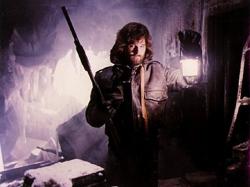
As I get friend requests on Facebook from aspiring (mostly technical, prog) musicians and bands due to my involvement with this website, I keep noticing a trend that people have towards wanting to know complicated music theory. Which is all well and good, but the thing is, these bands all sort of sound the same – whether it’s their riff patterns, their rhythms, their solos, or just the overall presentation of their band (which is a subject for another column entirely).
I think part of this trend – prog bands all sounding the same – has to do with the way young musicians approach theory. It’s funny, because I see people in the same music scenes who either outright reject the institutional training of music schools, or go in the opposite direction and fetishize it as though its a box to be checked by some player in a cool metal band that allows the listener to have another point of argument for why the musician is “good” (bands like Dream Theater, Revocation, etc.).
Neither of these ideas are new – and as far as the former goes, Frank Zappa gave basically a penultimate roast to the American Society of University Composers, “Is ‘New Music” Relevant in an Industrial Society” that addressed all of these problems people think are unique to the modern age back in 1984 (note: Zappa was “self taught,” but took his personal education extremely seriously, as you’ll see in the lecture). But somewhere in the cracks, the idea of taking lessons with a single (or several individual) musicians, of forming a bond with another human being and being humbled in the presence of a master, gets lost in the scuffle.
In high school and college, I did the same things these players I’m talking about do. I learned all of the modes, the altered scales, the tensions, the substitutions, etc. Inspired by guys like Allan Holdsworth, Robert Fripp, and many others, I thought the way to approach music was to try and master all of this complicated stuff, and through it, I’d be able to skip out on taking lessons and honing the basics of my instrument. And you know what? I didn’t retain any of it. I certainly couldn’t apply it outside of the “box” based thinking (an entirely physical, image-based way to approach an instrument, as opposed to a balance with hearing melodies and ideas).
That phase didn’t last long, but I wish I had cut it off sooner. Part of the reason I stopped (in addition to starting to take jazz more seriously) was that I watched Rush’s Beyond the Lighted Stage documentary, and learned that very late in his life and career, in the 1990’s, Neil Peart began taking lessons with jazz drummer Freddie Gruber, during which he completely revamped his style and approach to the instrument.
All of the things that Neil wanted to change about his playing come from the kind of pseudo-scientific, tight-fisted approach to music that I see in so many young guys who want to play fast and complicated stuff as soon as they pick up an instrument. Bad habits like playing metronomically or stiffly are quite hard to break; they’re also the most prevalent trends among metal bands, young and old. And they can only be broken by slow, methodical practice, often aided by taking lessons with someone who’s been around the block.
But the inspiring thing about Peart’s story is that most of his artistic and commercial success was long behind him when he decided to completely overhaul his drumming. This is a guy who was/is regarded as one of the greatest, if not the greatest, rock drummer of all time, and he had the humbleness and grace to go back to the basics (quite literally – his lessons with Gruber caused him to change his stick grip)
What I’ve found from taking lessons, hanging with experienced musicians and composers of various disciplines and scenes, and talking to all sorts of players, is that unless you’re a genius like Allan Holdsworth, all that complicated theory produces two results:
- It doesn’t stick for long.
- It doesn’t make what you’re doing any more inherently musical.
Which are two big problems, right?
I don’t mean to roast self-taught players – actually, teaching and working on music by yourself is critical whether you take lessons or not – but I do think Peart’s story is one that more people need to be aware of. We’re talking about one of the most cherished musicians in our general sphere period, and he had the balls to pump the brakes and take a close look at himself and his playing.
So don’t worry about whether it’s “cool” or not to take lessons, or that you’re going to lose any kind of silly “street cred” by not being completely self taught – you only have everything to gain!







